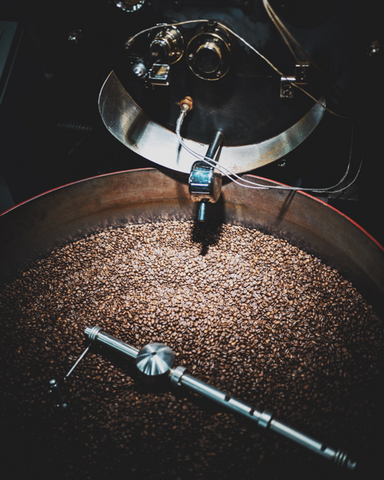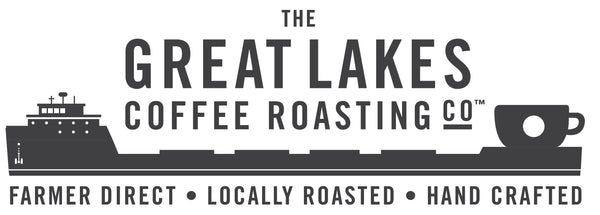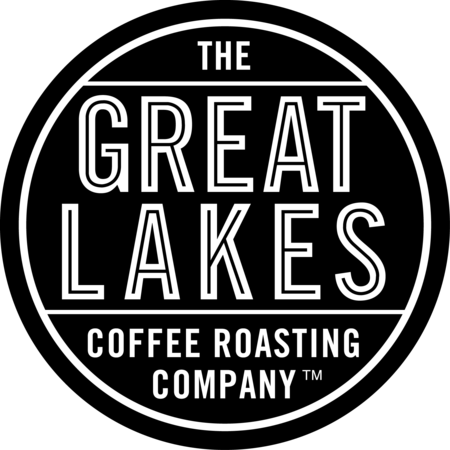You’re standing in line at a coffee shop, carefully decoding the menu options. Cappuccinos, mochas, dirty chais, lattes, and the list goes on. Feeling like a purist, you decide a black coffee is the way to go. Your eyes gaze over to the coffee section, and you’re faced with an even longer list of options. Light roast this, dark roast that, but you finally settle on the a French Roast because it’s a dark roast and that means more caffeine… right?
Eh, not exactly. It’s been a question in almost everyone’s mind at one point or another; “What even is the difference between a light roast and a dark roast?” And while you may be wondering which one has a higher caffeine content, it’s important to first note each one’s defining characteristics.

Light Roasts
You can almost immediately tell a light roast by the brightness in color. They are light brown or tan, to a subtle auburn color. They usually have a very floral aroma, and bring out sweet and fruity flavors upon the first sip. Light roasts have a deeper complexity and higher acidity because they have not been roasting for as long, hence the notable flavors. Take the Las Lajas, for example. The tasting notes include citrus and watermelon, offering a bright punch in each cup.
Dark Roasts
A dark roast, on the other hand, is known for its richness in body. The flavor profile will be intense, reflecting more flavor brought out from the increased time roasting. You may note hints of chocolate or caramel, yielding a much deeper taste. Dark roasts have an earthy, luscious brown to an almost black appearance, while the beans have an identifiable oily surface from the roasting process. The Detroit French Roast exudes that rich, chocolatey character that dark roasts are so notable for, with a lemony sweetness throughout. For something in the middle of the road, the Dark Horse Espresso compliments both flavor profiles, presenting a nutty, spicy and chocolatey palette.

Caffeine Content
While some people believe dark roasts are more caffeinated, others believe the opposite. And to be frank, both views make sense. A dark roast is obviously darker in color and bolder in taste, similar to a straight shot of espresso. So it wouldn’t be crazy to assume that a stronger flavor would have more caffeine. But for those that understand the work that goes into producing your morning coffee, they may assume that more caffeine is burnt away in a dark roast because of the significant increase in roasting time. Both valid conclusions, yet equally wrong.
Let’s break it down a little. As you roast coffee beans, they expand in mass. If you were to compare a light roast bean next to a dark roast, the light roast would be much smaller in size. Consequently, 90% of the water content is lost through the roasting process, explaining why a light roast has much more flavor complexity. Because light roast beans are smaller in mass, more beans will fit in a scoop, compared to dark roast beans. Thus, when measuring this way, the light roast brew would indeed have slightly more caffeine in each cup because it is more dense. Yet, when we compare by the weight of each roast, dark roast takes the cake because of its lower mass.
The truth is, there really is no difference in the amount of caffeine between the two roasts. In other words, the caffeine content stays stable throughout the roasting process. If you’re looking for a stronger cup of coffee, pay attention to the brew ratio (amount of coffee per amount of water).
Caffeine aside, light roasts and dark roasts are entirely different experiences. To truly admire and indulge in a specialty coffee, light roasts are the way to go. Every roaster has a dark roast, and they virtually are all pretty similar. But between various light roasts, you will notice a stark contrast based on the variety of the fruit, where it is grown, the farming practices used and how the coffee is processed. At Great Lakes Coffee, we stay true to our mantra, “coffee is a craft—not a commodity.” We entrust dedicated farmers who implement forward-thinking practices, delivering a product that is as equally superior, as it is unique.

